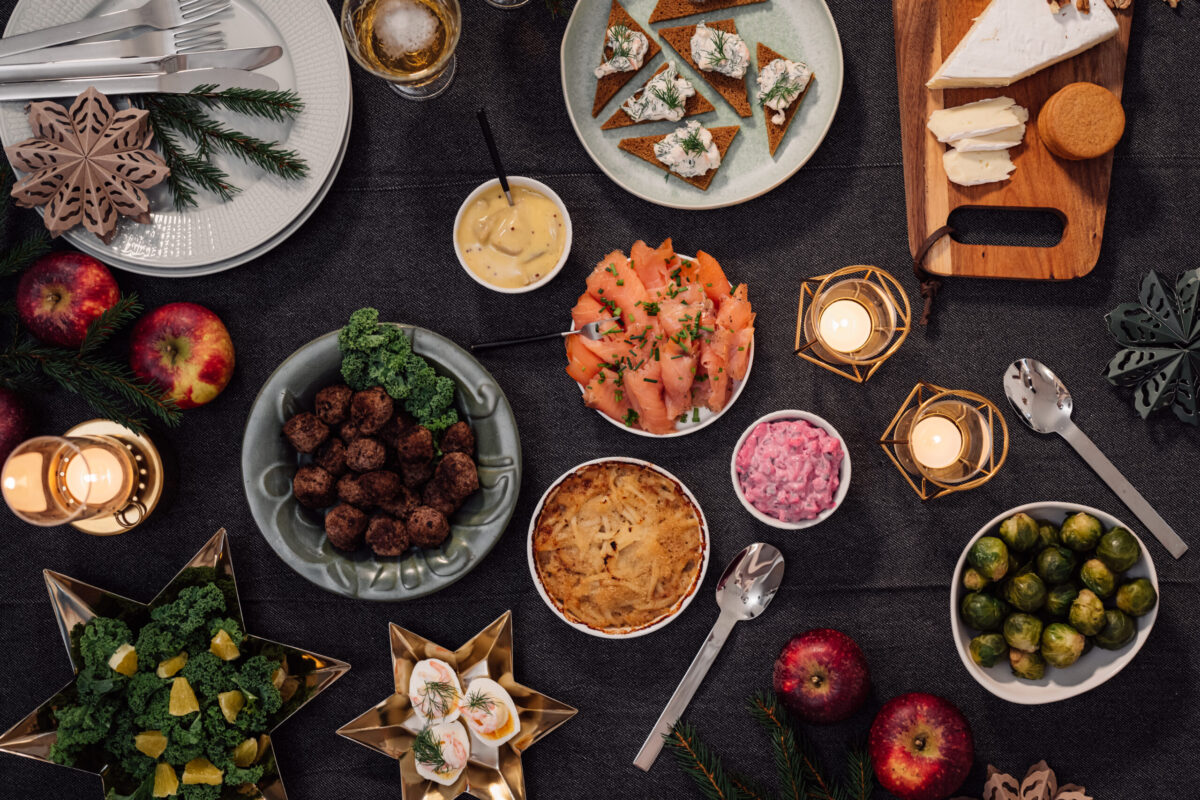It can be tempting to feel guilty about eating habits around the holidays. Often the plan is just survive and get back on track in January. But that’s a missed opportunity, says Sarah Provence, registered dietitian-nutritionist for BlueCross BlueShield of Tennessee.
“There are so many ingredients people can build holiday recipes around that have health benefits,” says Provence. “Cranberries are high in vitamin C, pumpkin is packed with vitamin A, and Brussels sprouts are full of folate and potassium.”
By focusing on using nutritious ingredients in healthy ways — preparing them without too much added sugar, salt or saturated fat — you can get into the spirit of the season without getting into unhealthy eating patterns. You’ll also feel better during the holidays and be a step ahead when it comes to your health-related goals for the New Year.
4 nutritionist tips for making a new year’s resolution that sticks
10 holiday foods to enjoy in healthy ways
“The holiday foods below are high in a variety of nutrients that are essential for our bodies to function,” says Provence. “This list highlights one nutrient each kind of food is a good source of and why our body needs it.”
Apples
Provence: Apples are high in soluble and insoluble fiber, which are important for lowering blood sugar, improving blood cholesterol and preventing constipation.
Soluble fiber slows down how quickly your body digests food, while insoluble fiber physically fills up space in the stomach and intestines. Both types of fiber further a healthy sensation of being full and satisfied after a meal.
Broccoli
Provence: Broccoli is rich in vitamin K, which helps build healthy bones, aids your body in using calcium and helps your blood clot properly.
Brussels sprouts
Provence: Brussels sprouts are high in folate, which helps your body metabolize protein, or change protein into a form that’s usable by your body. Folate is also key in the production of healthy red blood cells.
Butternut squash
Provence: Butternut squash is an excellent source of lutein, which is crucial for eye health. Lutein also reduces inflammation and may inhibit cancer-cell growth.
Carrots, pumpkins and sweet potatoes
Provence: These orange veggies and fruits (a pumpkin is technically a fruit!) all contain beta carotene. Our body converts that into vitamin A, which supports eye health and helps with the production of white blood cells, which helps the body fight infection or other diseases.
Cranberry
Provence: Cranberries contain proanthocyanidins (PACs) which decrease inflammation, promote heart and gut health and boost urinary tract health (which is the use many of us know cranberry juice for most).
Green beans
Provence: Green beans are high in vitamin C, which plays a key role in controlling infection and healing wounds.
Pecans
Provence: These nuts are an excellent source of manganese, which is needed for fat and carbohydrate metabolism and aids in blood sugar control.
Spinach
Provence: Spinach is packed with iron, which is needed to carry oxygen from your lungs to the other cells in your body.
Turkey
Provence: The white meat in turkey is a good source of lean protein, which is needed for healthy bones, skin and hair as well as muscle growth.
5 tips for healthy holiday eating
Provence: Eating mindfully is one key way to take some stress out of holiday eating. Take the time to enjoy the food, both while you’re preparing it and while you’re eating it, and try the 5 tips below.
- Bring the nutrients.
If you’re going to a holiday meal at someone else’s house, offer to bring a nutrient-dense dish such as a fruit or vegetable. While preparing it, be mindful of how much sugar, salt and fat you add. That way you know there will be at least one healthy food you can eat guilt-free! - Don’t come hungry.
When you skip breakfast and lunch, you may think you’re “saving up” your calories for later in the day, but cutting out meals actually makes you more likely to overdo it later. Have your meals at regular times and have a small snack before the party if needed. - Be a discerning diner.
Look at all of your options before you make your plate. That way, you can choose which foods are worth eating and which you can live without. - Eat the rainbow.
Make your plate as colorful as possible. The more visually pleasing your plate is, the more satisfying your meal will be. Plus, you’ll get a higher variety of vitamins and minerals. Win, win! - Avoid table temptation.
Don’t hang out around the food! It will make you want to graze more.
More healthy holiday eating tips from WellTuned
- Healthy Thanksgiving foods that still taste decadent
- 7 healthy holiday cooking tips from an Italian chef
- Easy swaps for traditional Thanksgiving food
Get more information about specific health terms, topics and conditions to better manage your health on bcbst.com. BlueCross BlueShield of Tennessee members can access wellness-related discounts on fitness products, gym memberships, healthy eating and more through Blue365®. BCBST members can also find tools and resources to help improve health and well-being by logging into BlueAccess and going to the Managing Your Health tab.


